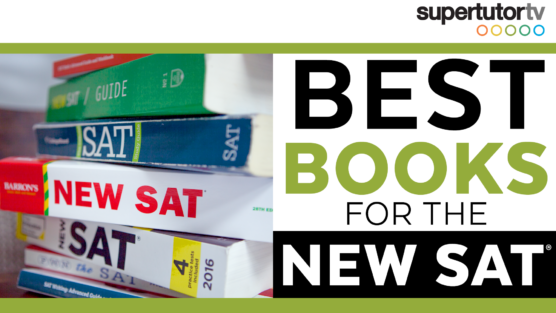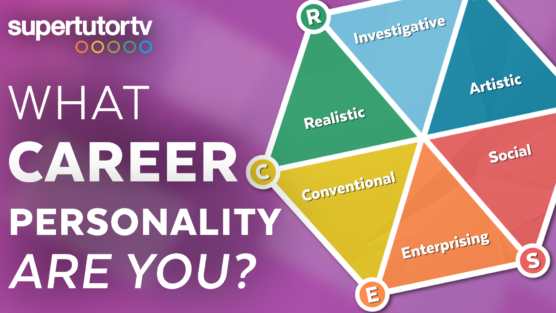Brooke recently interviewed Democratic Presidential Candidate Andrew Yang about education for our channel. A former tutoring entrepreneur, Yang served as the CEO of Manhattan Prep before its sale to Kaplan and also started a non-profit called Venture for America, which fosters growth of start-ups and entrepreneurship. We’re not usually on the political beat, and not out to make political endorsements, but felt Andrew had interesting ideas about issues we do cover so thought this interview would be of value to our audience. We also are huge fans of encouraging young people to get involved in politics, no matter your political beliefs.
BH: Recently we’ve heard a lot about how rich families are bribing their way into college. How Harvard is being sued for racism. Is the system rigged when it comes to higher education and what do you see as the role the government can play to try to make it more fair?
AY: Right now, school admissions are more brutally competitive than they’ve ever been. When I applied to Stanford back in the 90s, the acceptance rate was maybe 16-17% and now it’s between 4-5% so that just gives you a sense of the trends in education. Where government can help is we can change the incentives because right now these schools have no incentive to grow. They have no incentive to actually create more spots, they actually get rewarded for rejecting lots of people. If you reject 19 out of 20 people then you’re like, “ooo, our acceptance rate is only 5%, that’s actually good for the school, it’s good for their rankings.” And if you were to expand and accept more people that would be bad for your rankings. So that’s an incentive problem and the government can actually play a huge role because all of these universities are dependent upon the government for grant funding, tax exempt status that equates to billions of dollars a year, so if the government were to say look, as in this society, our incentive is not for you to reject lots of people, our incentive is for you to try and expand and educate more people then that, over time, could reverse some of the pressures that so many young people are on because they feel like there’s this life or death struggle to get in to certain schools.
BH: In what ways do you think the education system could look forward towards the future or adapt so that we can meet the demands of that future?
AY: This is related to entrepreneurship but our education system right now is very poorly designed to teach adaptability in the face of failure. Pretty much we’re just not allowed to fail in school. If you get an ‘F’ in a class then that’s like a negative game-changer. But I’ll tell you in the business realm, you fail all the time. Like very, very effective sales people, as an example, have a success rate of maybe 30%. That means you’re failing 7 out of 10 times and if you got a 30% on your test you’d be like, again, I got an ‘F’, that’s the biggest nightmare for many people. Our system unfortunately discourages failure to such a high level that our young people are geared to avoid activities that they’re going to fail at and when it comes to entrepreneurship the reverse is true where you sort of expect to fail a certain proportion of the time and then you push through that failure and then you figure out what works.
One way …is… I went to Brown University and one of the things that Brown did was that, they said if you fail a class then it doesn’t count. So that’s actually one way to do it. Now that’s very extreme, in most schools theirs parent would probably have their minds blown but that’s one way to encourage risk taking. Another thing that Brown did was that Brown actually said you could take a course pass/fail so you’d just take it for intellectual exploration.
BH: Can you talk about why you support the idea of 16-year olds being allowed to vote?
AY: Studies have shown that the earlier you vote, the more likely you are to vote long-term. So if you were to get people to vote at 16-17, then you would just increase the voting rate over time. It’s also the truth that right now our voting population skews old and so our policies tend to skew old. And if you reflect on it for a second, a 16-year old is going to be here on the planet for a longer time, no offense to anyone, than like a 70-year old. And so, if you have bigger stake in what’s happening then having you vote earlier would make you a perennial voter and also give you a stake in society faster. Now the argument against people voting early is that 16-year olds don’t understand politics and they’re not informed but the truth is that, right now, many Americans are voting with low information and so it’s not like we give people a test before they vote. 16-year olds voting will have another positive effect of turning high schools into massive hotbeds of political discussion activity because you’d literally have juniors and seniors in high school being like, who are you going to vote for? What are we going to do? You could have debates, you could say these are the different points of view and that would be transformative for high schools around the country so the benefits would far outweigh any drawbacks.
BH: What do you see as the most important issues or the biggest challenges that we’re facing as a nation when it comes to education?
AY: The problem right now is that educational institutions don’t have incentives to prepare people for the economy and the under-employment rate for recent college graduates right now is 44%. That is 44% of recent college graduates who are doing a job that does not require a college degree. That’s a very daunting stat and it’s one of the reasons why young people are very anxious about the future. Unfortunately [for] colleges, if they continue to do the same thing year after year, nothing really bad happens to them. And so, the big challenge for us is to try and have colleges shift gears towards things, and this is not to say, because if you look at the genesis of college, the purpose of college originally was not to train you for the workforce. It was actually to train you how to think, values, and training clergy, so the emphasis on employability right now is actually a relatively new thing. But it is the case that many people now go to college expecting to have their job prospects improved, so we have to try and tailor college and have it actually be more effective in terms of teaching things that might advantage one in the workforce. And the other thing that we need to do is we need to create more diverse paths for kids who aren’t going to go to college.
BH: How to students who are in college right now make sure that they don’t end up in that 44% and with all of this automation and all these things going on, how do they insure that they don’t become the major that their job disappears, or how do they deal with that uncertain future? How can they keep robots from taking their jobs?
AY: The first thing, good news, your job and your major aren’t necessarily the same thing. There are so many people I know who are doing jobs that have absolutely nothing to do with whatever they studied in college so as long as you’re adaptable and positive to work with and a hard worker, you can find an opportunity in a different field than you studied and go very, very far. The single best piece of advice I’d have is to try and find an organization, or a mentor, or an employment opportunity that helps you advance professionally that you’re excited about.
BH: What’s up with the MATH hat?
AY: Well, it stands for Make America Think Harder which is what we have to do but it also arose from an applause line on the campaign trail, which is the opposite of Donald Trump, is an Asian man who likes math, and so that’s gotten me massive rounds of applause around the country and so this MATH hat is now a symbol of the campaign. Make America Think Harder. And if you wear a MATH hat what’s fun is anyone who’s in the know will look at you and say “Yang Gang” or something like that and you can share a knowing thumbs up.
Watch Andrew in the Democratic DNC debates this Thursday, June 27th, on NBC.




